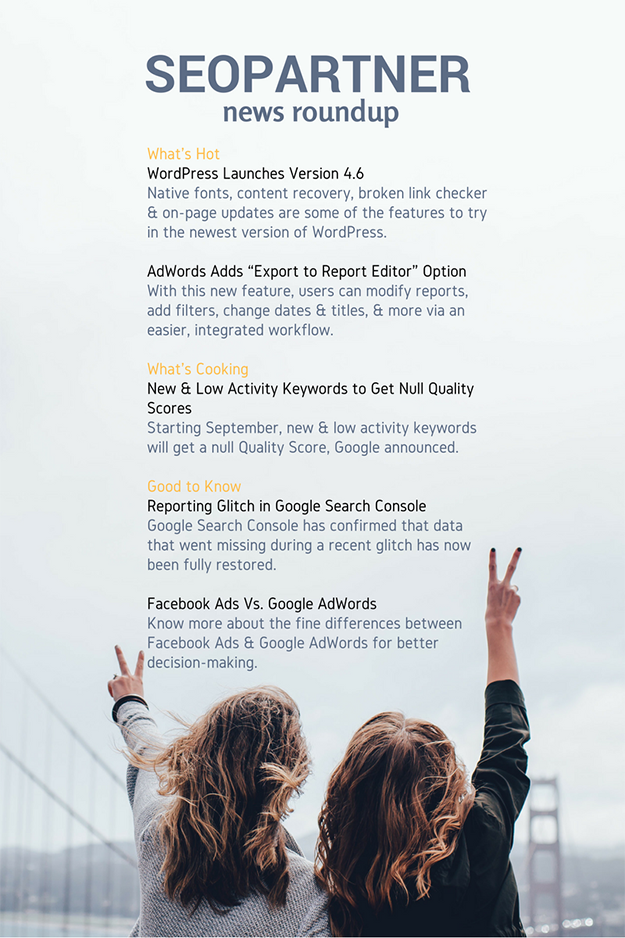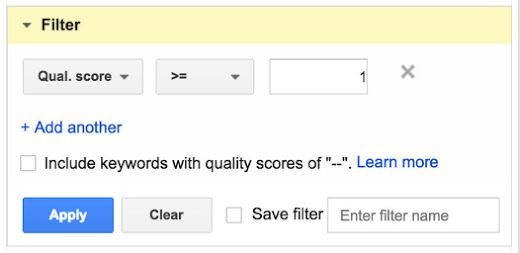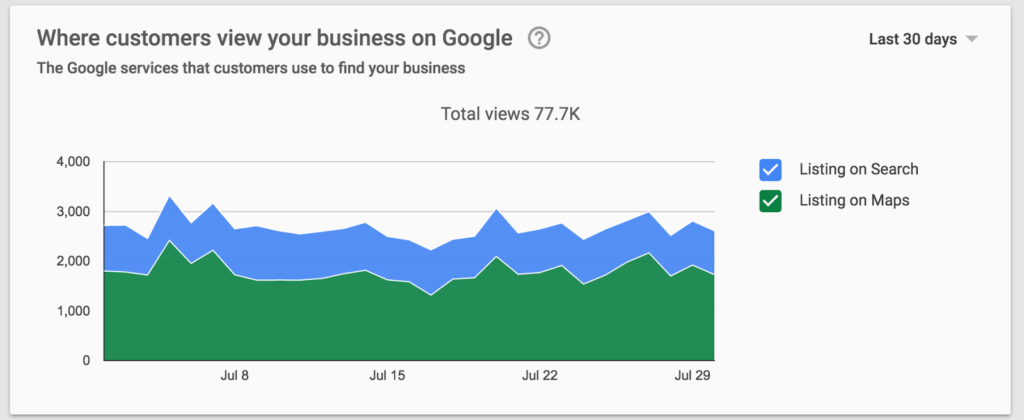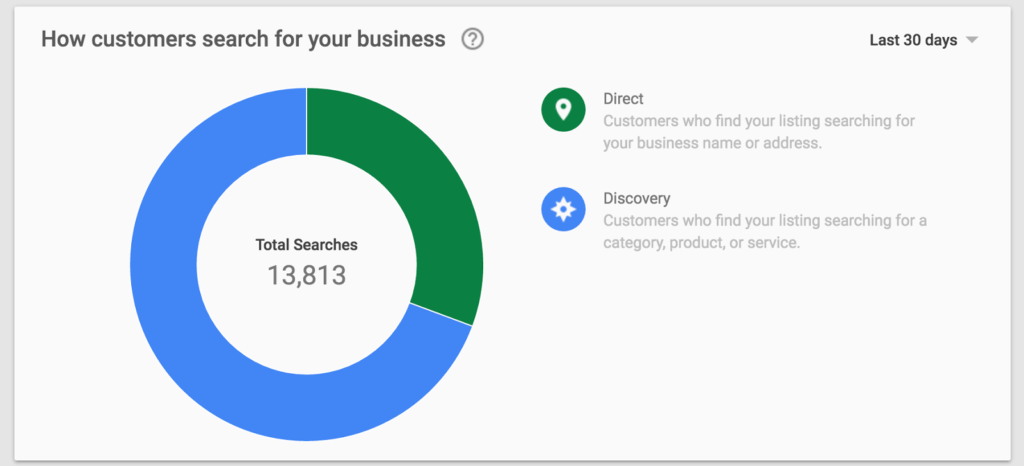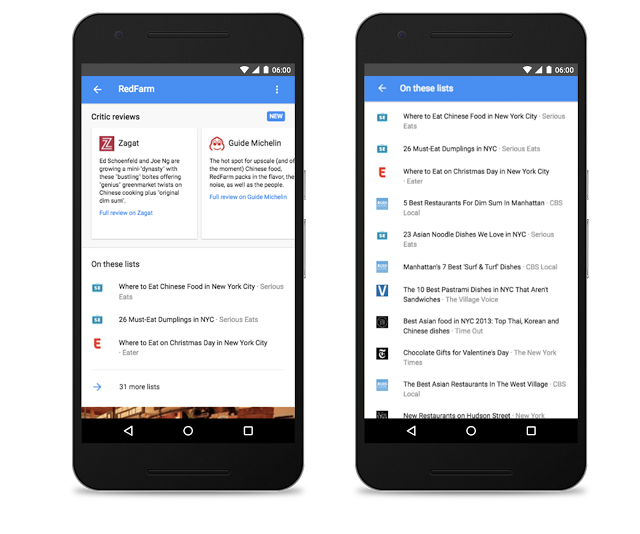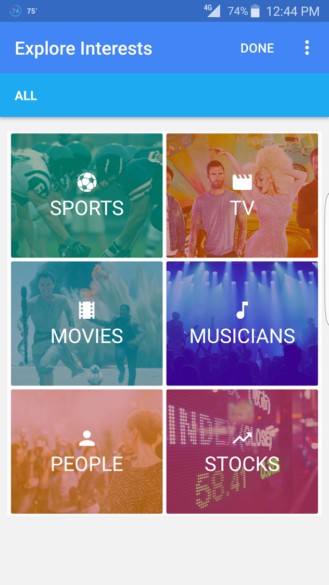This week at SEOPartner, we’re sharing: SEO updates that can deliver significant impact to your results, exciting changes in the marketplace to watch out for, good-to-know studies and information, and tips to try based on recent findings on search, online marketing and more.
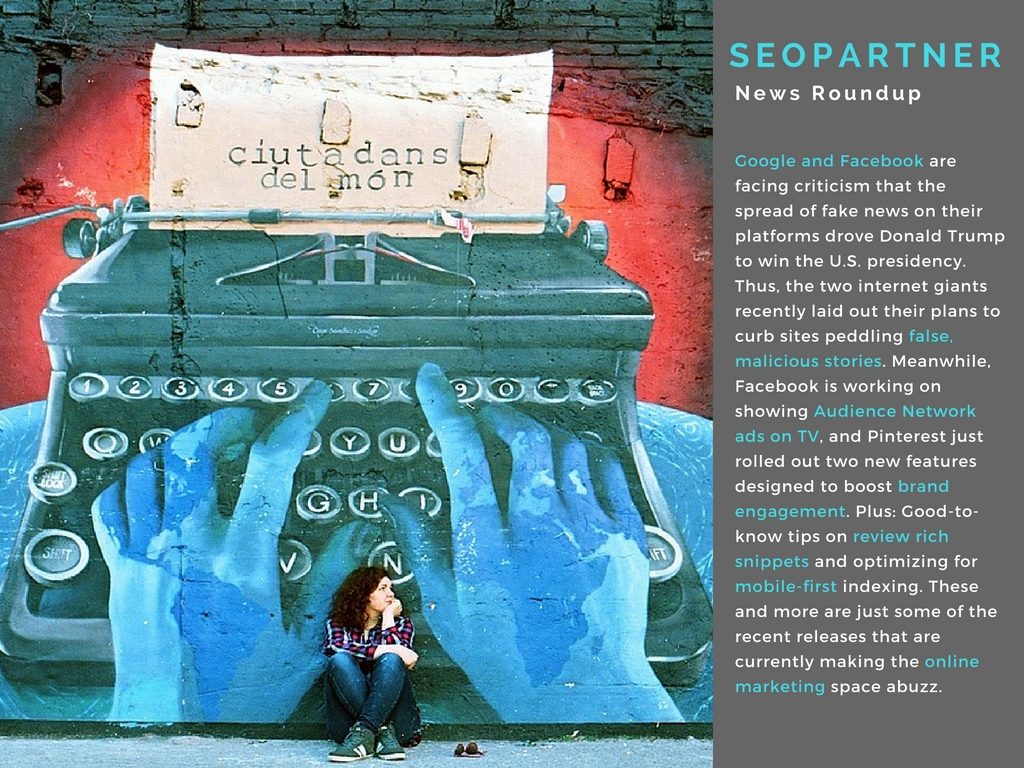
1. Google & Facebook to Ban Ads on Fake News Sites

Google and Facebook recently announced their plans to fight deceptive information on their platforms.
Google is changing its ads policy to ban fake news sites from using ads from the Google Display Network. In a statement, the company said: “We’ve been working on an update to our publisher policies and will start prohibiting Google ads from being placed on misrepresentative content, just as we disallow misrepresentation in our ads policies.
Moving forward, we will restrict ad serving on pages that misrepresent, misstate, or conceal information about the publisher, the publisher’s content, or the primary purpose of the web property.”
Meanwhile, Facebook updated its ad policy to prohibit apps or sites with “illegal, misleading or deceptive” content from displaying Facebook ads.
CEO Mark Zuckerberg posted a second statement on the issue, saying: “We’ve been working on this problem for a long time and we take this responsibility seriously. We’ve made significant progress, but there is more work to be done.”
Zuckerberg also said they are working on the following:
– Build better technical systems to classify misinformation
– Offer easier ways for users to report fake stories
– Partner with fact checking organizations
– Improve the quality of stories in News Feed
– Review ad policies to disrupt fake news economics
The two internet giants faced backlash due to the spread of false, often malicious information during the U.S. presidential election period. Fake news stories were seen to have swayed voters’ opinions in favor of Republican candidate Donald Trump.
Source: http://searchengineland.com/web-giants-google-facebook-seek-cut-off-revenues-fake-news-sites-263464
2. Coming Soon: Facebook Ads on TV?
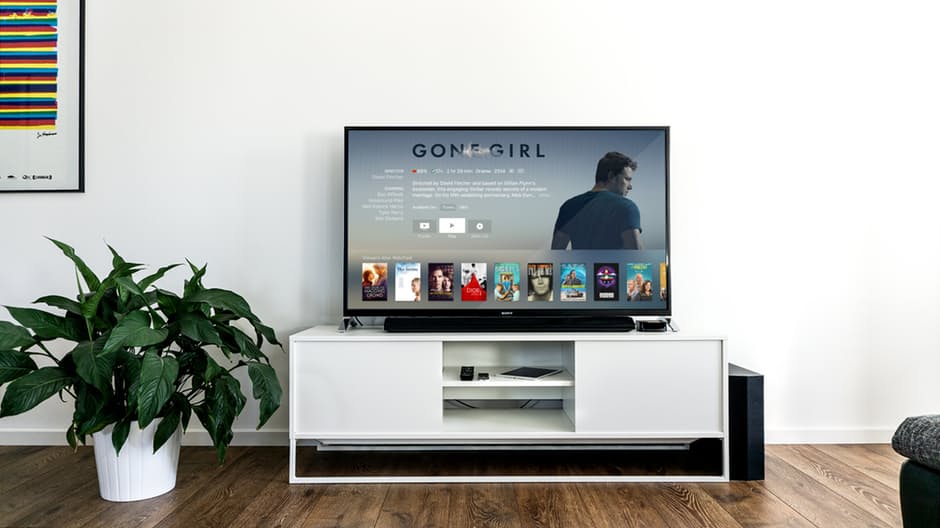
Facebook is testing a new way to deliver ads on TV through set-top boxes like Apple TV and Roku, Recode recently reported. They have partnered with A+E and Tubi TV to deliver the connected TV ads through the Audience Network (Facebook’s version of Google AdSense).
Using the IP addresses of connected TV devices, Facebook will identify accounts in their platform that are most likely associated with those devices. At the moment, only Facebook house ads and ads for non-profits they work with will be shown.
Ad spend for television is still a bit greater than ad spending on social media. Thus, marketers and content owners are closely watching Facebook’s newest effort to tap into TV advertising budgets.
Source: https://searchenginewatch.com/2016/11/08/facebook-is-bringing-its-audience-network-to-television
3. Soon on Pinterest: Autoplay Promoted Videos
Pinterest is rolling out two new features: Autoplay Promoted Videos and “Tried It” pins.
Autoplay Promoted Videos
– Since August, Pinterest has been testing a new type of Promoted Video which starts playing as soon as users discover it.
– Brands that use Promoted Video can create a seamless episodic viewing experience, discover new ways to tell their story and get business results.
– Additional videos will automatically play right after the primary video, creating “a playlist of ideas.”
– Autoplay Promoted Videos will soon be housed within a section called Pinterest Explore, which will feature curated and trending content daily.
“Tried It” Pins
– Pinterest users can now add a checkmark to pins to help them remember or keep track of ideas they have tried.
– Tapping on the checkmark will allow the user to see that pin anytime in a new profile section called “Tried.” This essentially works as a bookmarking feature for the site.
– Users can also share their experiences with their “Tried it” pins through shared photos, feedback and notes. Other site users or visitors will be able to read or view these comments since these will appear on the pins.
– The “Tried it” pin is already available for use on Pinterest mobile and will be ready for roll out on the desktop version soon.
Source: https://www.searchenginejournal.com/pinterest-autoplay-promoted-videos/178885/
Images and video via: https://business.pinterest.com/en/blog/inspire-pinners-give-your-ideas-try and https://business.pinterest.com/en/blog/express-your-brand-story-new-promoted-video-option
4. How Review Rich Snippets Impact Your SEO Campaign

Reviews appear within Google search results via rich snippets, which can influence a searcher’s understanding of the business and boost site SEO. Thus, it’s beneficial for businesses to understand the power of online reviews.
Google displays two types of reviews in search results:
a) Review snippets – Average scores (numerical rating) from all the combined review ratings, accompanied by some text. These appear either under the search result or in the Google Knowledge Cards.
b) Critic reviews – Snippets from an in-depth review, often offering insights deeper than those seen in review snippets. These are displayed prominently under the domain’s knowledge graph.
– Reviews attract the attention of the target audience and provide more understanding of the product or service.
– Review snippets lead to higher CTRs, boost conversion rate by 58% and increase organic keyword ranking by 48.71 to 70%.
– To maximize reviews, it’s important to monitor your review snippets and identify the keywords that they affect. Tools such as SEMRush’s review snippet feature can help efficiently analyze review snippets in relation to your SEO.
Source: https://www.semrush.com/blog/understand-google-review-snippets-to-optimize-your-seo
5. More Tips to Optimize for Mobile-First Indexing

A while ago, we shared Google’s tips on how to prepare for mobile-first indexing. The following are further recommended actions that will enhance your mobile search visibility.
1. Increase page speed.
– Optimize images, clean up your code, utilize browser caching and minimize redirects.
2. Stop hiding CSS, JavaScript or images.
– Today’s mobile devices and GoogleBot can now handle and recognize them.
3. Invest in responsive web design.
– Get rid of Flash and pop-ups; make design “finger-friendly.”
4. Optimize on-page elements for mobile.
– Make titles and descriptions straightforward and concise.
5. Optimize for local search.
– Display city, state, business name, phone number and address strategically throughout your pages.
Source: http://searchengineland.com/5-steps-optimizing-site-googles-mobile-first-index-262716
SUMMING IT ALL UP
Here are the top headlines in this week’s SEO news roundup:
Google & Facebook to Ban Ads on Fake News Sites. The two online giants are updating their ad policies to reduce the spread of false and often malicious information online.
Coming Soon: Facebook Ads on TV. Facebook is testing an innovation that will enable them to deliver their ads on TV.
Soon on Pinterest: Autoplay Promoted Videos. Autoplay promoted videos can help businesses increase audience reach and engagement.
How Review Rich Snippets Impact Your SEO Campaign. Know how online reviews work, since they strongly influence how you rank and appear on Google’s SERP.
More Tips to Optimize for Mobile-First Indexing. Learn more action steps that will further prepare your site for a mobile-first world.
